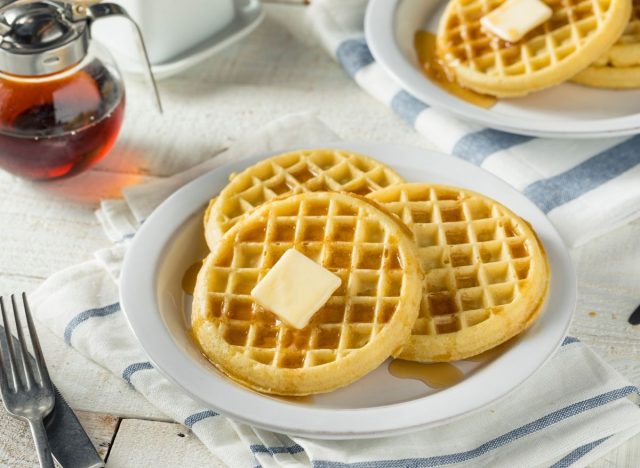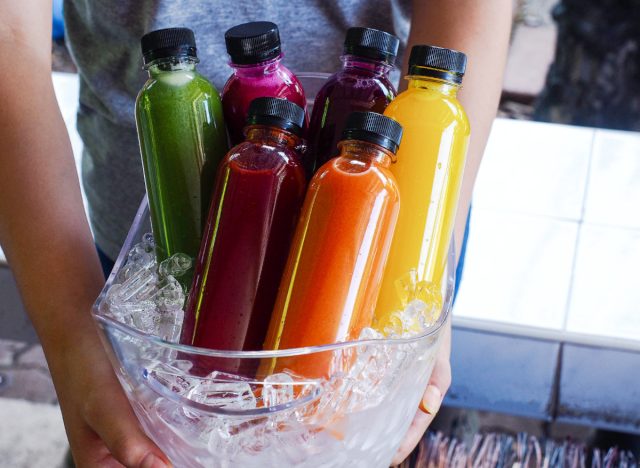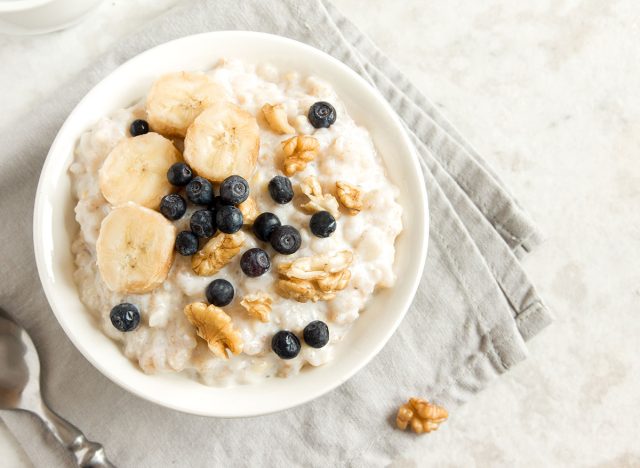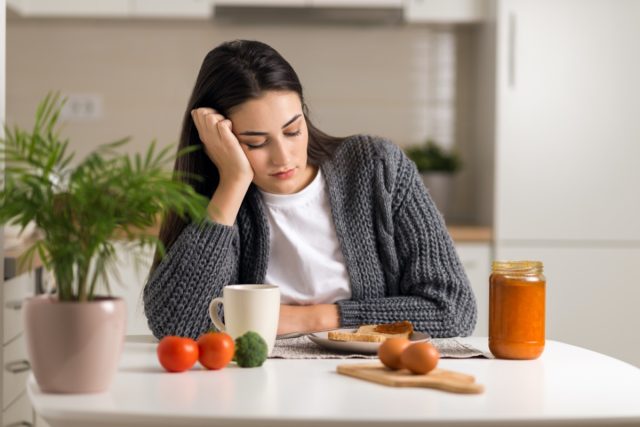Although you can get diabetes at any age, type 2 diabetes tends to occur in middle-aged adults and older folks. According to the National Institute of Health (NIH) you're more likely to develop type 2 diabetes if you're 45 years of age or older. Other risk factors for type 2 diabetes include a family history of diabetes, or being overweight or obese.
Whether you have been recently diagnosed or have had diabetes for some time, below you'll find recommendations from diabetes experts on the worst eating habits you can have after the age 50. Read on, and for more on how to eat healthy, don't miss The #1 Breakfast to Eat Every Day for Diabetes, Says Dietitian.

As you age your muscle mass declines and that can begin as early as in your 30s. A decline in muscle mass "can lead to a decrease in metabolism and since a higher muscle mass is associated with better insulin sensitivity, you want to avoid losing it at all costs," explains Lauren Harris-Pincus, MS, RDN, founder of NutritionStarringYOU and author of The Everything Easy Pre-Diabetes Cookbook.
Instead: In order to better maintain muscle as you age, Harris-Pincus recommends taking in at least 20 grams of protein at breakfast. "[People] tend to get enough total protein throughout the day but it's key to consume that 20 to 30 grams in the morning to replenish and support your muscle after a long overnight fast," says Harris-Pincus. What does 20 grams of protein look like? It's about 3 eggs, 3/4 cup of cottage cheese or Greek yogurt, or 1/4 cup of protein powder.
RELATED: 9 High-Protein Breakfast Ideas to Help You Lose Weight

If you're a person with diabetes, Toby Smithson, RD, CDE, founder of DiabetesEveryDay and author of Diabetes Meal Planning and Nutrition for Dummies warns not to fall into the latest dieting trap like detox or juicing. "Thankfully, our body has its own detoxing system (think kidneys, liver, lungs, intestines, and skin) and the issue with juicing is that you will be missing out on important nutrients like fiber," explains Smithson.
Instead: Smithson recommends eating a well-balanced diet that includes, not excludes, sources of fiber-rich carbohydrate, lean protein, and healthy fat sources which helps maintain your overall health and balanced blood sugar levels. These foods, including fiber, help slow down the absorption of carbs, and help you feel fuller longer.

Carbs have a bad reputation, especially when talking about diabetes. According to Harris-Pincus, not all carbs are created equal and some actually help control blood sugar. "Fiber is super important to manage blood sugar levels and foods like oats and beans that contain soluble fiber help to regulate blood glucose by delaying the absorption of the carbohydrate." In addition, other foods like berries contain antioxidants called polyphenols which are believed to help to improve insulin sensitivity so even though they contain carbohydrates, they can have a positive effect on blood sugar.
Instead: Harris-Pincus recommends choosing "quality carbohydrates with high fiber content like whole grains, fruit, veggies, beans, nuts and seeds and aiming for the recommended 25 to 38 grams of fiber per day."

Do you think skipping meals will lower your blood sugar or help you lose weight? Smithson, however, warns not to do it. "Often skipping meals will raise blood sugar as your body goes through a 'save itself' action to quickly spill more glucose into your bloodstream and even become more resistant to use of insulin," explains Smithson.
"Passing up one of your three meals each day in an attempt to lose weight can also backfire into overeating due to hunger or experiencing a low blood sugar. You don't want to deprive your body, especially the brain, from the required fuel it gets from glucose."
Instead: The best approach eating consistent meals containing lean protein, healthy fat, and carbohydrates that contain fiber throughout the day.
And for more, check out these What Happens to Your Body When You Skip a Meal.
The Worst Eating Habits for Diabetes After 50, Say Dietitians — Eat This Not That - Eat This, Not That
Read More


No comments:
Post a Comment